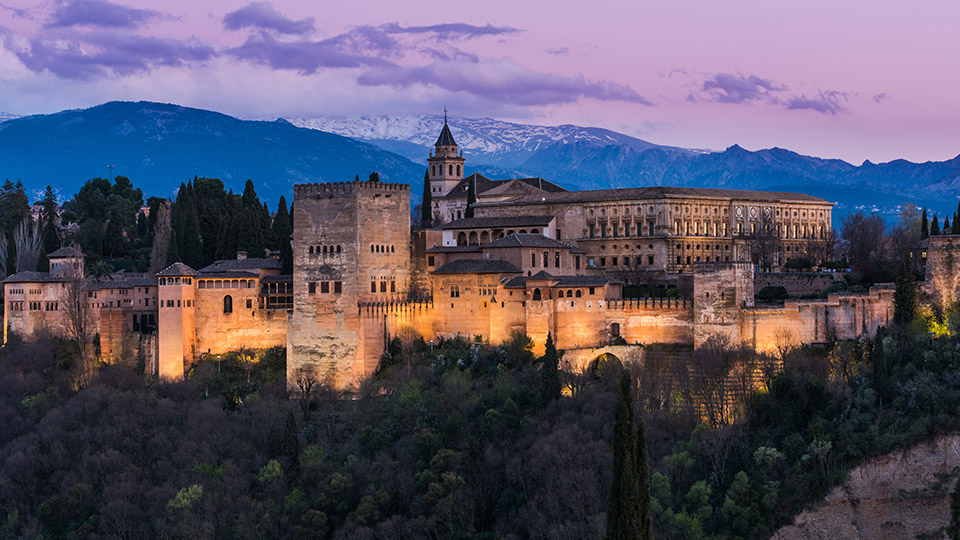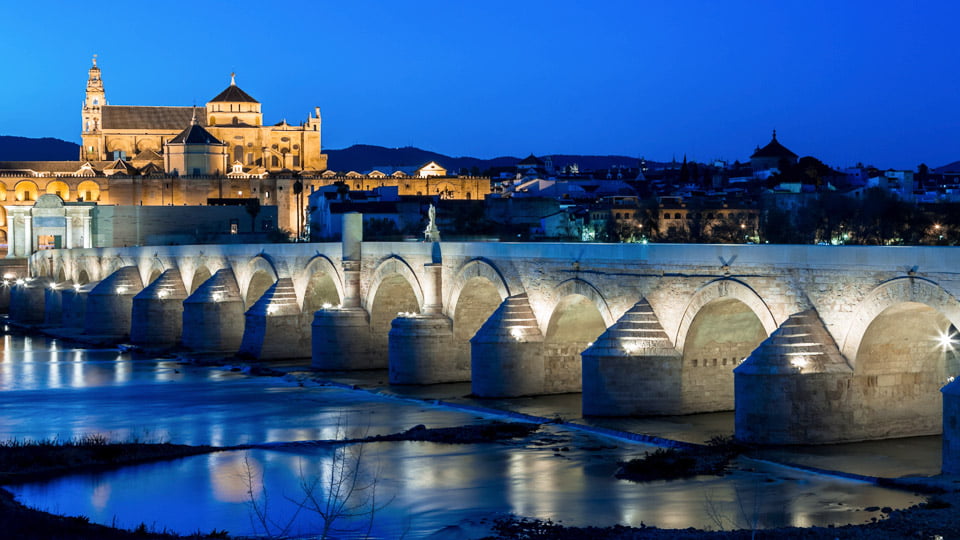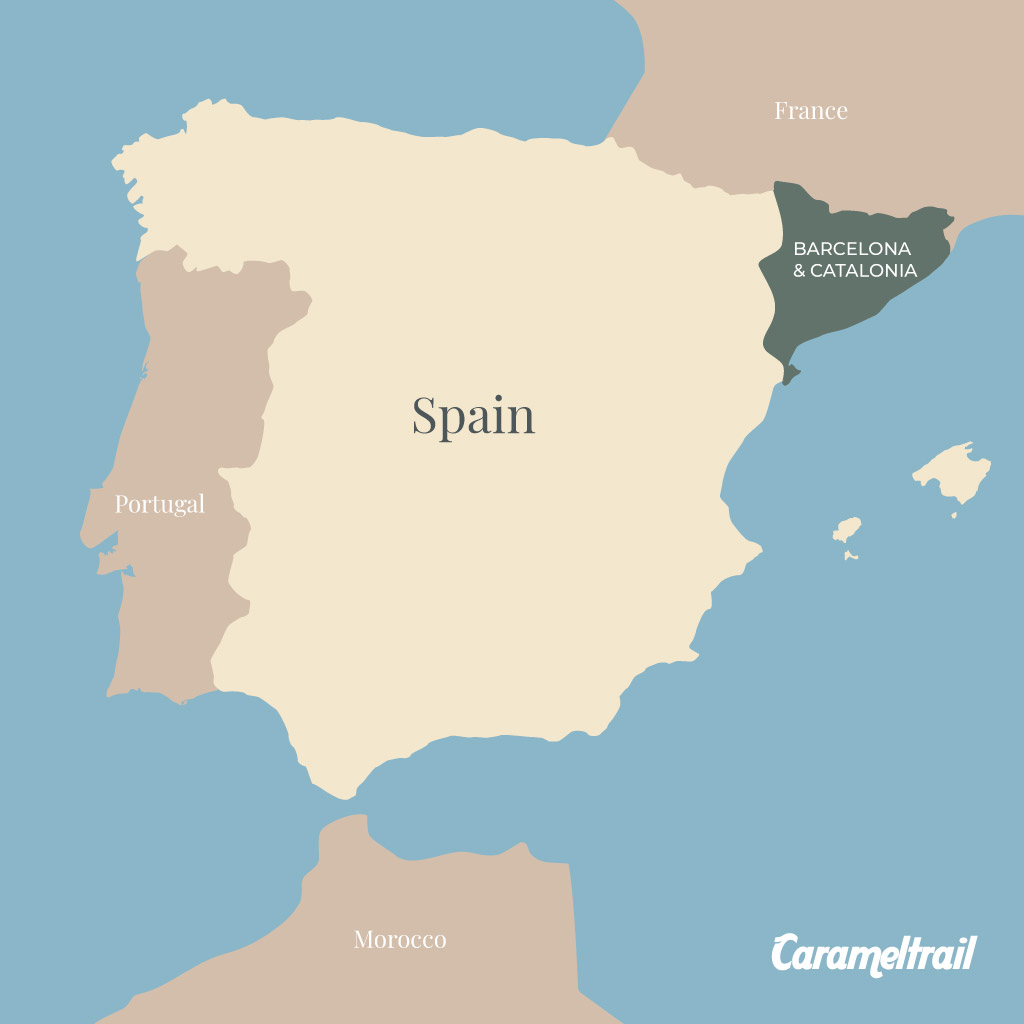
Jewish Tours Barcelona. The Gothic Quarter Barcelona (Barri Gòtic)
During centuries, the Iberian Peninsula has been home to prosperous Jewish communities. Even if we don´t know with great accuracy when did Jewish life begun there, there were evidences that date back to the I century A.D. Most of the Jews in Spain were called Sephardic, including those from Portugal, but those living in Catalonia were known by other names.
SPAIN AND JEWISH TRAVEL
History of Barcelona
Spain has an incredibly rich past and Barcelona has a history dating back to Roman times. The city was founded in the year 15 a. C. and in the thousands of years since countless groups of people have called this city home.
Jewish community
Among those groups that have come and gone, the Jewish community played an especially important role in the growth of Barcelona as a cultural and business center on the Mediterranean coast. The city and the region in general would not be the same without that influence.
Jewish Tours in Spain
Jewish history in Barcelona is difficult, with ups and downs, but the story is not over yet. Several congregations still exist within the city today. Bearing this in mind, some Jewish tours of Spain may sound like a very good travel idea.
Visit the Barcelona with Jewish legacy
If you are planning a visit to Barcelona and want to know more about the role that the Jewish people played in shaping this great city, there is plenty to see.
THE GOTHIC QUARTER IN BARCELONA (BARRI GÒTIC)
Barri Gòtic is among the fists choices tourists make when getting to Barcelona. This neighborhood is the cultural hub of the city, which makes it suitable for any type of traveler.
Its name comes from the fact that it was a Roman village and it has some remnants of that past. The mix of old and new brings people from all around the world to visit the Gothic Quarter.
Barri Gòtic has a lot of peaceful squares (plaças) for you to relax and enjoy the surroundings. Still, one of the main attractions here is the huge Cathedral with a stunning courtyard.
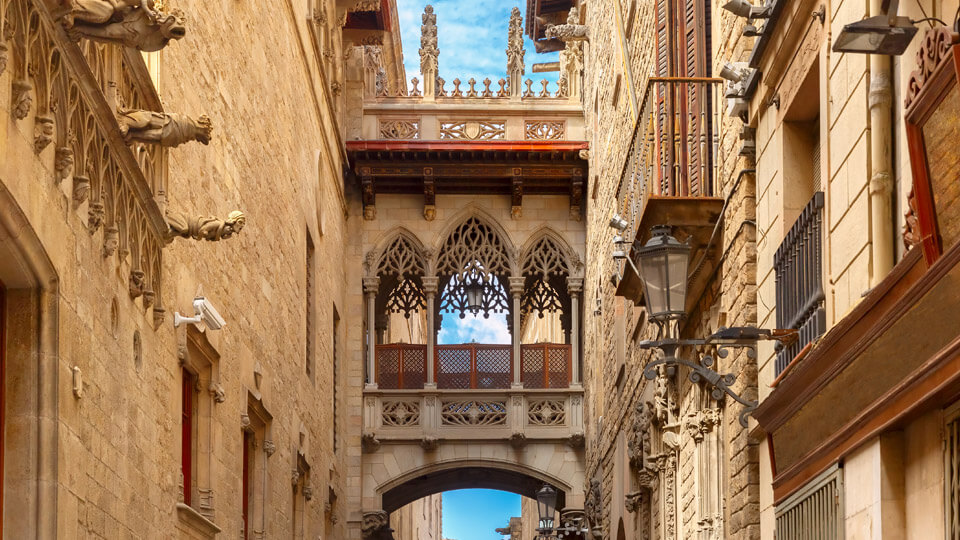
Let yourself amazed by the number of restaurants and bars, especially near Plaça Reial which is full day and night. Besides, being at night in the Gothic Quarter means being alive and have a lot of fun, and here you will most certainly find some place to have a drink or a dance.
If one of your pleasures is to go shopping when in holidays, the Gothic Quarter is a great choice. There is a commercial area from Calle Portal de L’Angel that goes to all the little boutiques on Calle Avinyo. The best way to see things better is walking, because the Gothic Quarter is perfect for an afternoon stroll.
Besides, you are here in the center of the city, which means that many of the city’s attractions are just a walk away.
THE JEWISH QUARTER IN BARCELONA
The Jewish Quarter or Call located in Barcelona is a part of the Gothic Quarter. Back in the Middle Ages, this part of the city was its center of culture and also home to two synagogues. One of these, the Sinagoga Major, is still one of Europe’s oldest synagogues because it dates from the 6th century.
The Jewish Quarter has been home for schools, hospitals and baths. Back then it was surrounded by two city walls which were the limits of the old Roman establishment. But the Jews also had houses and workshops outside the city walls.
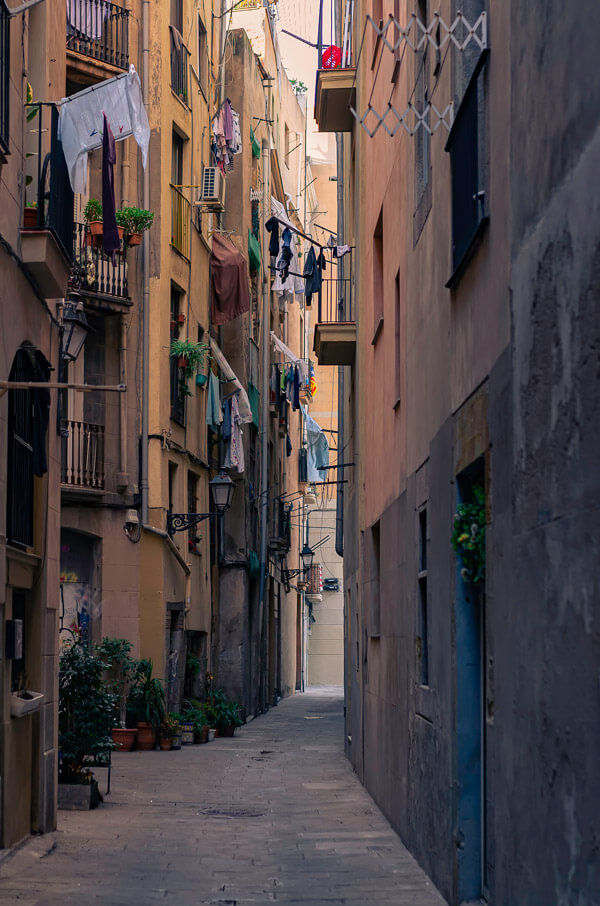
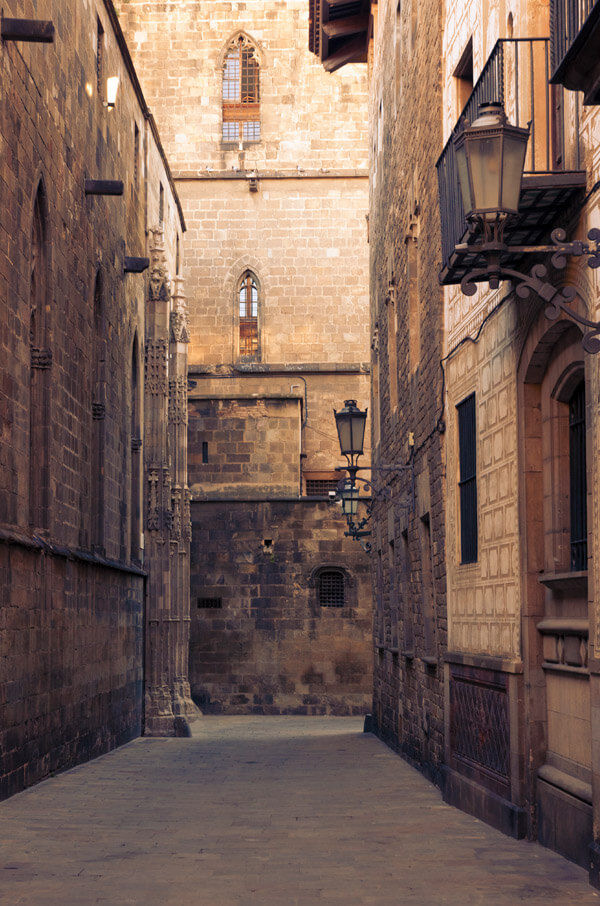
The Call Major is the largest Jewish quarter and at the same time is home to the Sinagoga Major. This place was the center of Jewish life in Barcelona until some attacks on the community happened. In one of these attacks 300 Jews were killed.
After this tragedy, Jewish cemeteries and synagogues were destroyed and the Jews were forced to convert to Christianity. Moreover, the quarter fell into decline and the buildings were transformed.
CATHEDRALS IN BARCELONA
Barcelona is closely associated with Gothic and modernist architecture. Moreover, the La Seu Cathedral and Santa Maria del Mar church provide beautiful examples of the former and Gaudí’s Sagrada Familia a sublime offering of the latter. But the Renaissance is also majestically represented in the Esglesia de Betlem on Las Ramblas, and Romanesque architecture in the church of Sant Pau del Camp.
There are 15 churches and cathedrals in Barcelona, each elegant, and interesting in its own way. Here are 8 that every visitor, religious or not, must see.
The best way to see these works of art is to stay in Barcelona for a few days, to enjoy the surroundings, people and weather, which all together make the city.
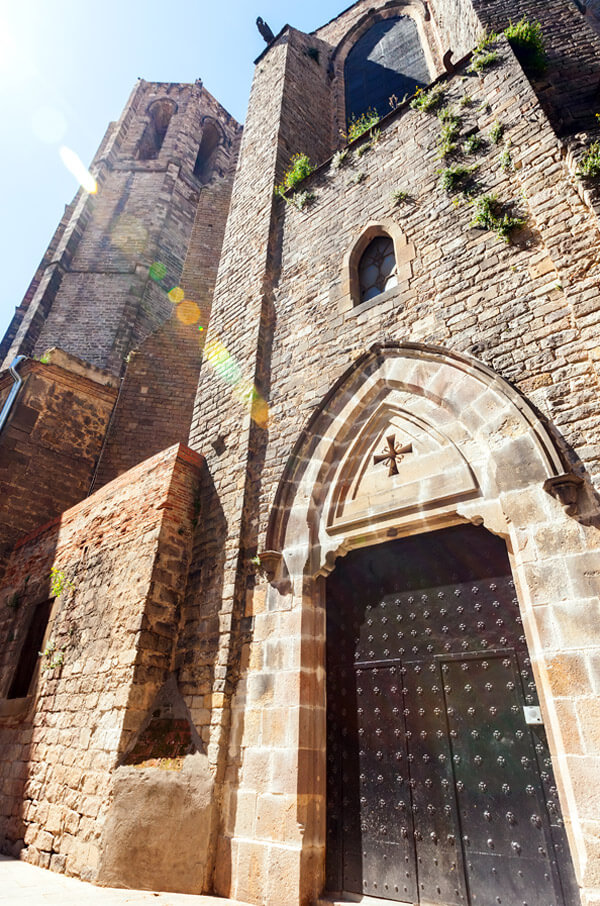
GOTHIC CATHEDRAL BARCELONA
Barcelona´s Cathedral is the Neo-Gothic church that steeped in legend.
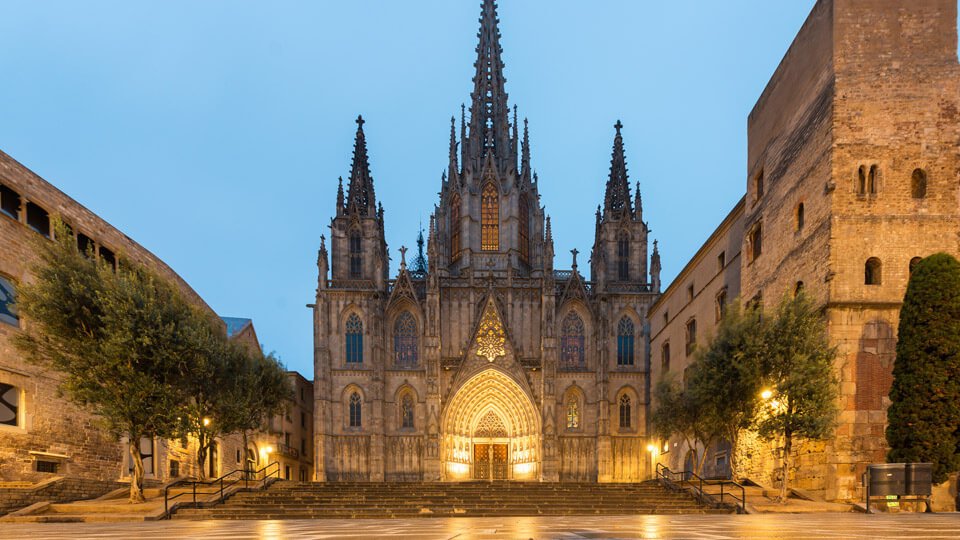
Your name
Barcelona’s gothic cathedral La Seu is situated in the centre of Barcelona in the Gothic district (Barri Gòtic). Its full name in Catalan is Catedral de la Santa Creu i Santa Eulàlia which means Cathedral of the Holy Cross and Saint Eulalia. Santa Eulalia was a young virgin who suffered martyrdom during the Roman times. Nowadays she is the patron saint of Barcelona.
It was built
Built between the 13th and 15th century, the Cathedral of Barcelona is one the most popular sites in the Catalonian capital. The cathedral is a striking example of Gothic architecture although the façade, despite its Gothic appearance, is actually a neo-Gothic addition from the late 19th century. The façade of the cathedral is perhaps one the most striking features and was constructed to replace a humbler 14th-century façade.
Symbolism
One of the features of the cathedral for which it is most renowned is its collection of wonderful gargoyles, which come in all shapes and sizes. Aside from the gruesome gargoyles, the cathedral is rich in Catholic symbolism, with references to the Bible and Christian mythology: a treasure for any historian with a keen eye.
When visiting the cathedral, be sure to make your way to the rooftop to admire the cathedral’s ornate spire and the breathtaking view of the city from above
SALVADOR DALÍ HOUSE MUSEUM. PORTLLIGAT
Another must see objective while making a Jewish tour in Spain is Salvador´s Dali house museum.
The Portlligat house museum has been once Salvador Dalí’s home. The artist lived and worked in this house until 1982, when Gala died and he decided to move to Castell de Púbol.
The Portlligat House Museum is the perfect shape in a mirror of Salvador´s Dalí home because all of the rooms have openings of different shapes, sizes and proportions. He created here some kind of labyrinth full of personal objects and souvenirs by using narrow passageways, different levels and enclosed areas.
Starting with 2009, there is another area that can be visited, one that the artist used to make sculptures and for performances.
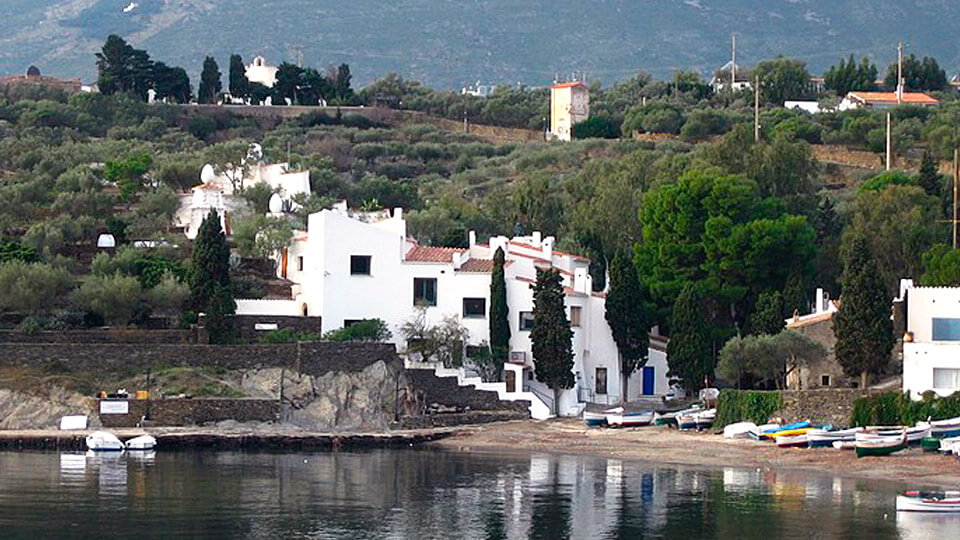
Photo: Salvador Dali’s House Museum in Portlligat” Wikimedia.org
KOSER TRAVEL VACATIONS IN BARCELONA
Jewish Barcelona
What could be a better destination for a kosher travel to explore the treasures of Europe than to visit Spain and indulge in its rich Jewish heritage? And what can be better for this than the Jewish Barcelona?
Kosher luxury travels
Whether you are looking for an unusual way to celebrate a Jewish Holiday or you just after a unique holiday experience, the Iberian Peninsula has something to offer for every kosher traveler. From historical sites, restaurants and coffees, kosher luxury travels, film festivals, to the cultural life of Jewish communities, Barcelona has it all!
INSIDE OUT TO THE JEWISH SPAIN
A trip to some Jewish sites in Spain will take you back in time to one of the greatest periods of Jewish history: the Spain of the Golden Age, which produced an abundance of Jewish poets, philosophers, kabbalists, and intellectual giants, such as Maimonides and Judah HaLevi.
The Golden Age came to a brutal end in 1478 with the Spanish Inquisition, which forced hundreds of thousands of Jews to either convert to Christianity or die. The Jewish legacy in Barcelona has no end and our journey will follow the story of the Jews: those who were expelled, those who stayed behind in secret, hiding, and those who live here today. Interested? Begin today!


